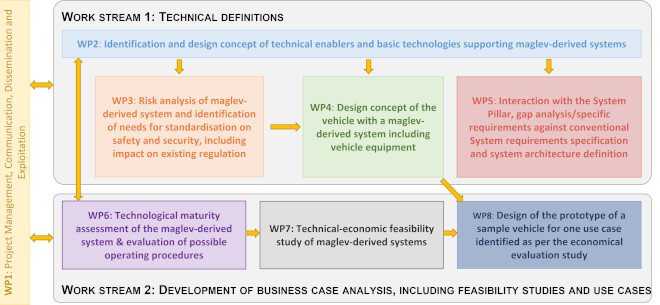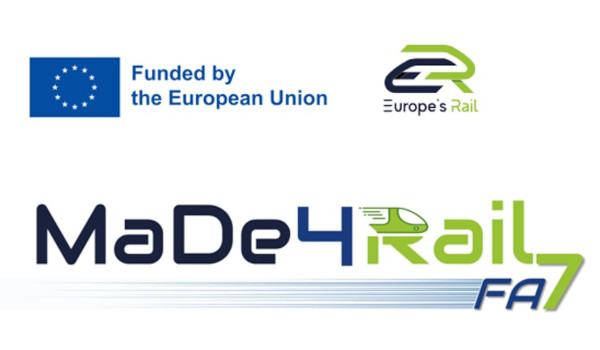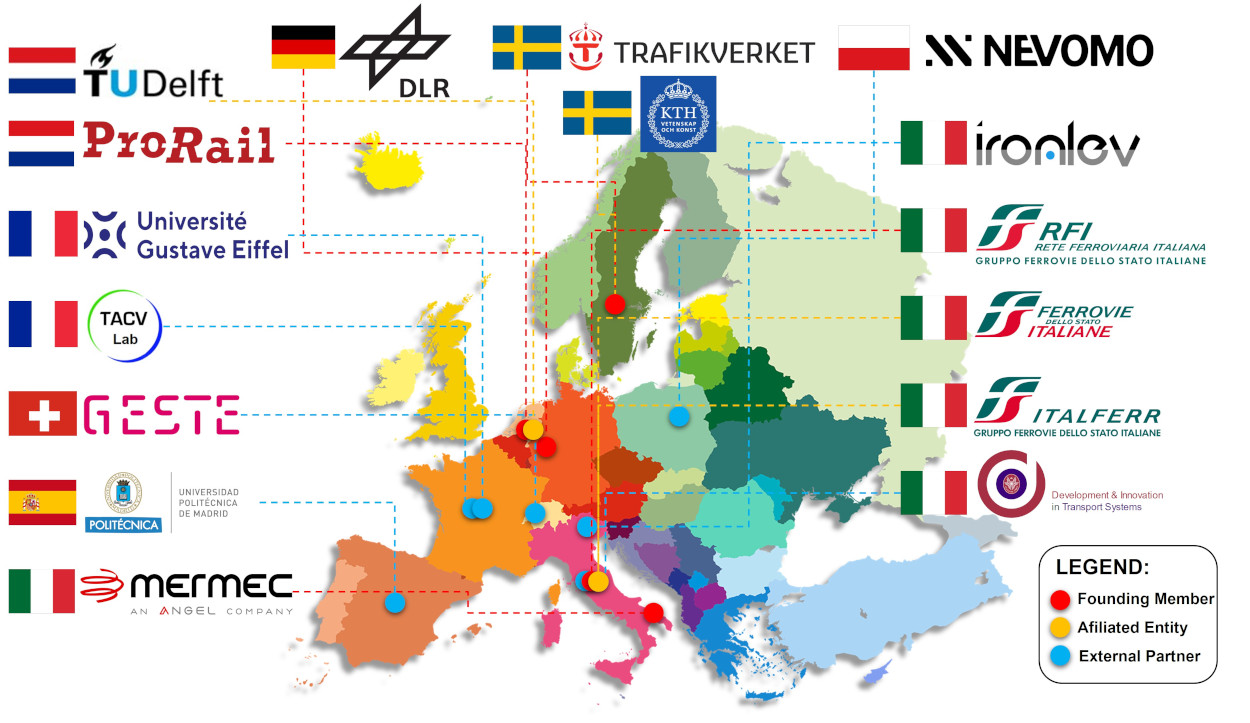Project objectives
MaDe4Rail project aims to evaluate the technical feasibility and effectiveness to introduce MDS in Europe from the perspective of safety, economic and technical performance. As the scope of the Flagship Area 7 is to explore non-traditional and disruptive guided transportation systems that are based on new technologies, MaDe4Rail aims to contribute to the development of MDS. Quantitative KPIs are not formulated in this project, as its goal is to build a common knowledge, define the technological concept and the specifications of maglev-derived transportation systems to understand the potential of introducing such system – or their subsystems – into the European transportation network and to foster development towards its commercial maturity.
Project structure
The overall methodology of the FA7: Maglev-derived systems will be subdivided into two major workstreams (WS): WS1 – Technical definitions and WS2 – Development of business case analysis, including feasibility studies and use cases. Each WS is divided into WPs that organize different activities in homogeneous tasks and gather the right competences.

Facts&Figures
Project budget: 1,499,328.12 €
Duration: 12 months
Project start date: 01/07/2023
Project end date: 30/06/2024
Partners: 12 partners from 8 countries
Project coordinator: Rete Ferroviaria Italiana S.P.A.
Call: HORIZON-ER-JU-2022-02
Grant agreement no.: 101121851

Funded by the European Union. Views and opinions expressed are however those of the author(s) only and do not necessarily reflect those of the European Union or Europe’s Rail Joint Undertaking. Neither the European Union nor the granting authority can be held responsible for them
